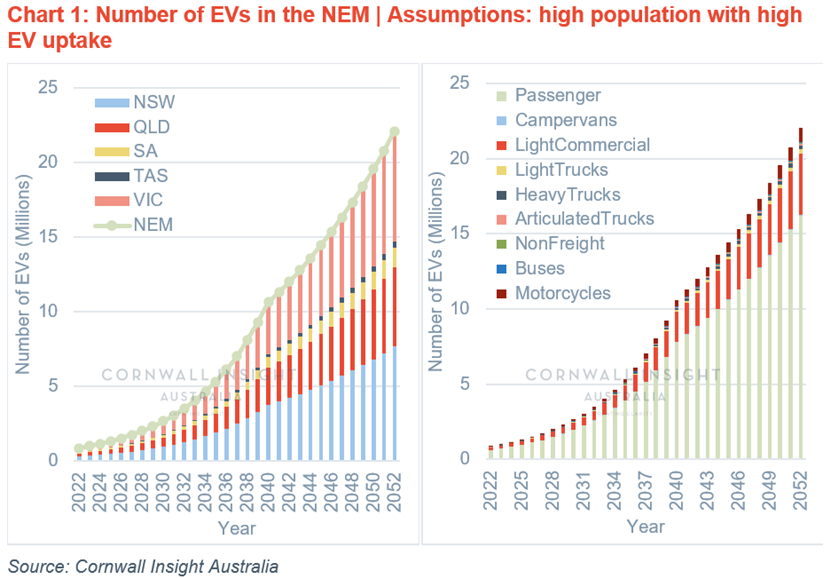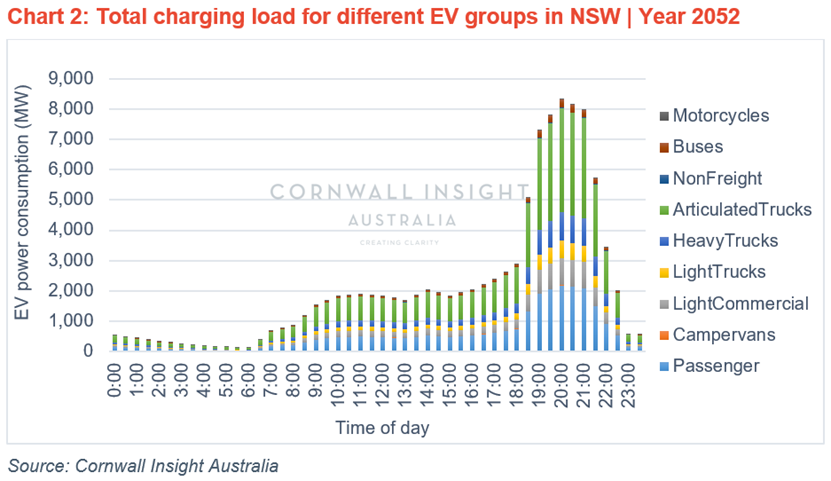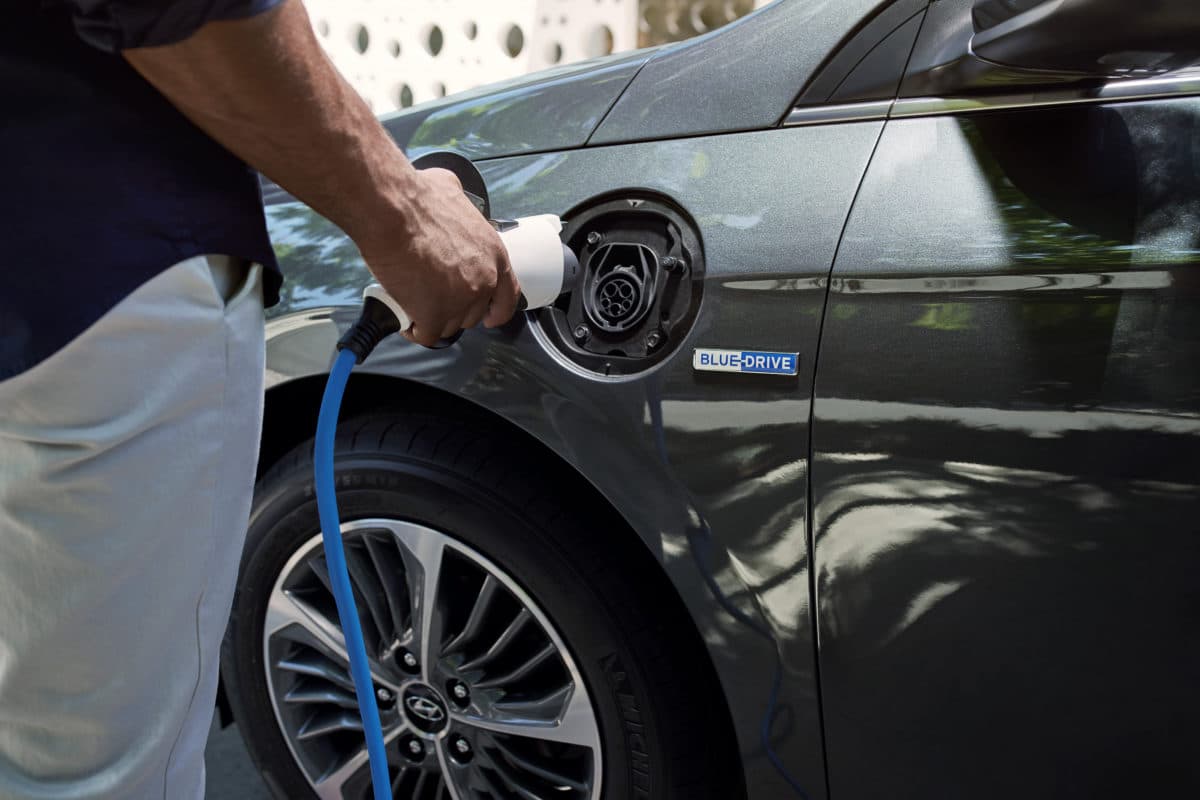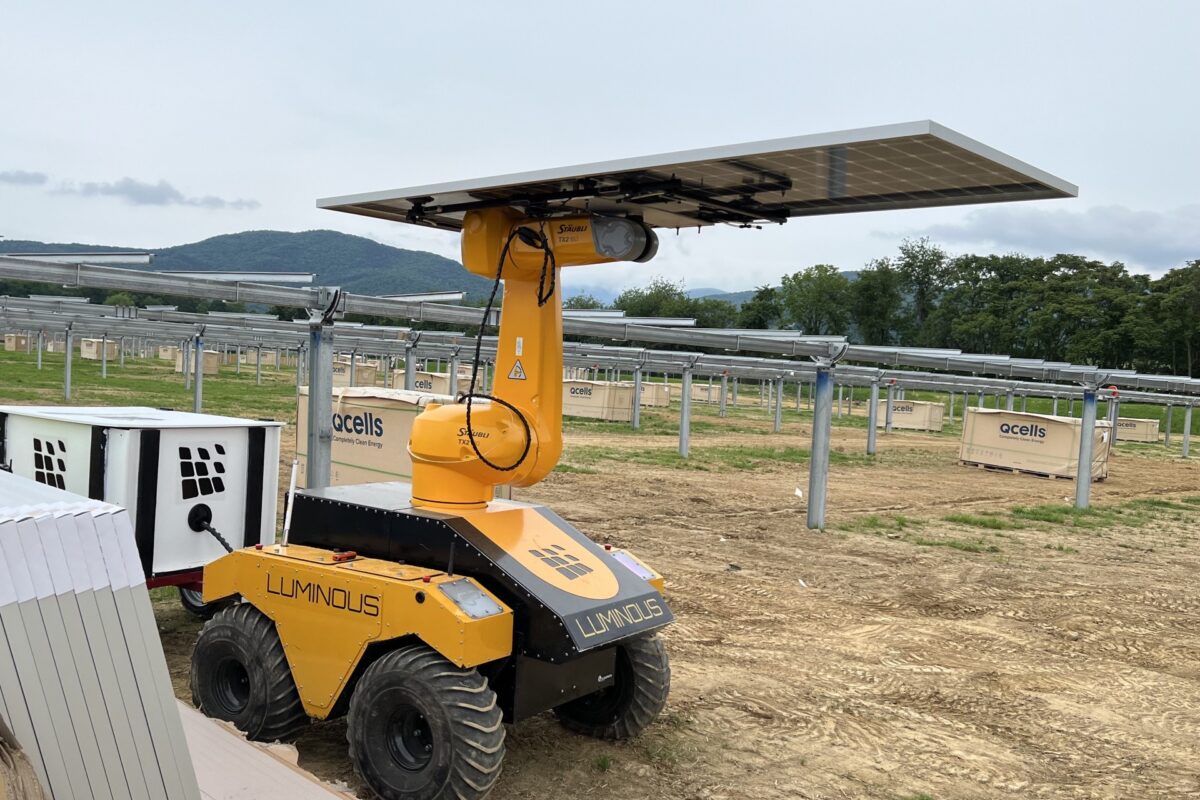The scenario is based on a high population and an EV penetration rate of 98% of total cars in Australia. Figure 1 displays the projected number of EVs by state and user type under these conditions.

The growing popularity of EVs presents a challenge for the electricity market as many EV owners prefer to charge their vehicles during evening peak hours, causing a surge in demand. To prevent overwhelming the grid, it is crucial that EV owners be encouraged to charge during hours of high renewable generation, such as mid-day or early morning.
A considerable share of the charging load for EVs by 2052 is expected to come from trucks, which drive an average of 79 thousand kilometres per year. Offering financial incentives for off-peak charging to fleets could alleviate the stress on the network, reduce the need for power grid upgrades and save truck drivers a significant amount of money.
Figure 2 uses New South Wales (NSW) as an example of what could happen if the scale of EV charging is not properly managed. Our data shows there will be an 8 GW total demand for EV peak charging by 2052. This is compared to the current 10 GW evening peak in NSW.

“The golden era of internal combustion engine cars is coming to an end, and we must start planning for the increased load on the grid from electric vehicles. To ensure the energy grid is not overwhelmed, it will be essential to encourage charging during non-peak hours,” Mojtaba Jabbari Ghadi, Energy consultant at Cornwall Insight Australia, said.
“With truck drivers accounting for 60% of demand by 2052, focusing on this smaller but high-impact group instead of a vast number of passenger car users is a potential solution to lower grid stress.
“Properly implemented financial incentives can offer a win-win for both the electricity grid and consumers by easing pressure on the system and potentially saving drivers thousands of dollars.”
This content is protected by copyright and may not be reused. If you want to cooperate with us and would like to reuse some of our content, please contact: editors@pv-magazine.com.








2 comments
By submitting this form you agree to pv magazine using your data for the purposes of publishing your comment.
Your personal data will only be disclosed or otherwise transmitted to third parties for the purposes of spam filtering or if this is necessary for technical maintenance of the website. Any other transfer to third parties will not take place unless this is justified on the basis of applicable data protection regulations or if pv magazine is legally obliged to do so.
You may revoke this consent at any time with effect for the future, in which case your personal data will be deleted immediately. Otherwise, your data will be deleted if pv magazine has processed your request or the purpose of data storage is fulfilled.
Further information on data privacy can be found in our Data Protection Policy.